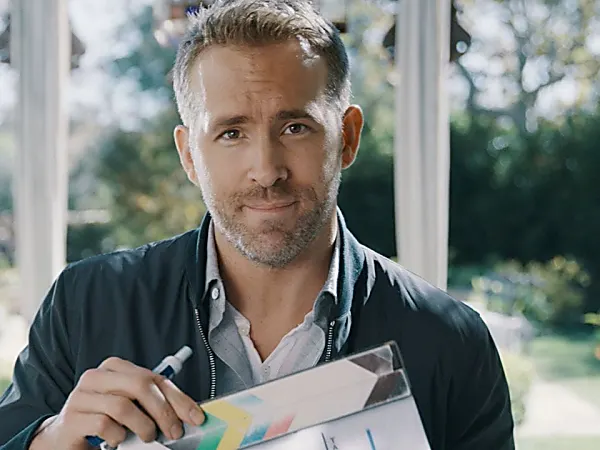The Biden administration appears to be weighing whether to work with China to seek a negotiated settlement of the Ukraine war after what U.S. officials predict will be Ukrainian gains in their long-planned offensive.
Secretary of State Antony Blinken publicly described the administration’s views in a Washington Post Live interview Wednesday to mark World Press Freedom Day. His comments echoed what senior officials have been saying privately in recent days about potential American and Chinese cooperation to mediate the brutal conflict.
The predicate for any such diplomatic effort would be Ukrainian gains on the battlefield, which could put Kyiv in a stronger bargaining position. Asked about Kyiv’s prospects in its anticipated counterstrike in eastern Ukraine, Blinken answered: “I feel confident that they will have success in regaining more of their territory, and I think it’s also important to note that for Russia, this is already a strategic failure.”
When I asked Blinken about working with China to achieve a stable outcome in Ukraine, he gave a surprisingly frank answer: “In principle, there’s nothing wrong with that if we have a country, whether it’s China or other countries that have significant influence that are prepared to pursue a just and durable peace. … We would welcome that, and it’s certainly possible that China would have a role to play in that effort. And that could be very beneficial.”
Blinken said there were some “positive” items in the 12-point peace plan that China announced in February. The Chinese proposals includes respecting “the sovereignty, independence and territorial integrity of all countries,” which implies a Russian troop withdrawal; “reducing strategic risks” and agreeing that “nuclear weapons must not be used”; and taking steps “to gradually de-escalate the situation and ultimately reach a comprehensive cease fire.”
Blinken said Wednesday that the Xi-Zelensky call was “a positive thing, because it’s vitally important that China and other countries that have been seeking to advance peace hear from the victim, not just the aggressor.”
Russia has been unhappy with the Chinese mediation effort, several administration officials told me. But Moscow, subordinate to Beijing economically and militarily, can’t easily resist China’s wishes. That’s one reason administration officials are intrigued by Chinese peace efforts; they believe they might prevent Russia from trying to renew the war later — after a pause. “The only stability is China as a guarantor,” one official told me.
Discussing any durable peace effort, Blinken said “it has to basically reflect the principles that are at the heart of the United Nations charter when it comes to territorial integrity, when it comes to sovereignty. It can’t ratify what Russia has done, which is the seizure of so much of Ukraine’s territory. And it needs to be durable in the sense that we don’t want this to land in a place where Russia can simply rest, refit and reattack six months later or a year later.”
Blinken continued: “As a matter of principle, countries, particularly countries with significant influence like China, if they’re willing to play a positive role in trying to bring peace, that would be a good thing. But it starts fundamentally with Vladimir Putin actually making that fundamental decision. We’ve not seen that yet.”
Blinken’s public expression of interest in a possible Chinese mediating role is part of a broader effort to define what he likes to call a “cooperation basket” between the two countries in what is otherwise an increasingly competitive relationship. He said he was hopeful that he might be able to reschedule a trip to China that was postponed after February’s spy balloon incident. Other American diplomatic contacts with China are also underway.
“There’s a clear demand signal from around the world that we manage this relationship responsibly — a demand signal on us but also on Beijing,” Blinken said. “And that starts with engagement. … At the very least, we need to have a floor under this relationship. We need to have some guardrails on it, and the way to do that is through engagement.”
Administration officials are still debating whether a parallel U.S.-China peace effort might validate a broader Chinese role in Europe at a time when the United States has been trying to keep European allies from making sweetheart deals with Beijing. But when even Zelensky — who depends on U.S. military aid for his country’s survival — is welcoming contact with Xi, excluding China might be unrealistic.
A better strategy, toward which the administration seems to be leaning, is to acknowledge Beijing’s role but insist it must act responsibly to be treated as a great power. China could start by encouraging a just peace in Ukraine.
One year of Russia’s war in Ukraine
Portraits of Ukraine: Every Ukrainian’s life has changed since Russia launched its full-scale invasion one year ago — in ways both big and small. They have learned to survive and support each other under extreme circumstances, in bomb shelters and hospitals, destroyed apartment complexes and ruined marketplaces. Scroll through portraits of Ukrainians reflecting on a year of loss, resilience and fear.
Battle of attrition: Over the past year, the war has morphed from a multi-front invasion that included Kyiv in the north to a conflict of attrition largely concentrated along an expanse of territory in the east and south. Follow the 600-mile front line between Ukrainian and Russian forces and take a look at where the fighting has been concentrated.
A year of living apart: Russia’s invasion, coupled with Ukraine’s martial law preventing fighting-age men from leaving the country, has forced agonizing decisions for millions of Ukrainian families about how to balance safety, duty and love, with once-intertwined lives having become unrecognizable. Here’s what a train station full of goodbyes looked like last year.
Deepening global divides: President Biden has trumpeted the reinvigorated Western alliance forged during the war as a “global coalition,” but a closer look suggests the world is far from united on issues raised by the Ukraine war. Evidence abounds that the effort to isolate Putin has failed and that sanctions haven’t stopped Russia, thanks to its oil and gas exports.
Opinions about China

David Ignatius writes a twice-a-week foreign affairs column for The Washington Post. His latest novel is “The Paladin.” Twitter
Opinion|What 6 data points tell us about the status of the war in Ukraine








 Sponsored
Sponsored Sponsored
Sponsored Sponsored
Sponsored Sponsored
Sponsored

